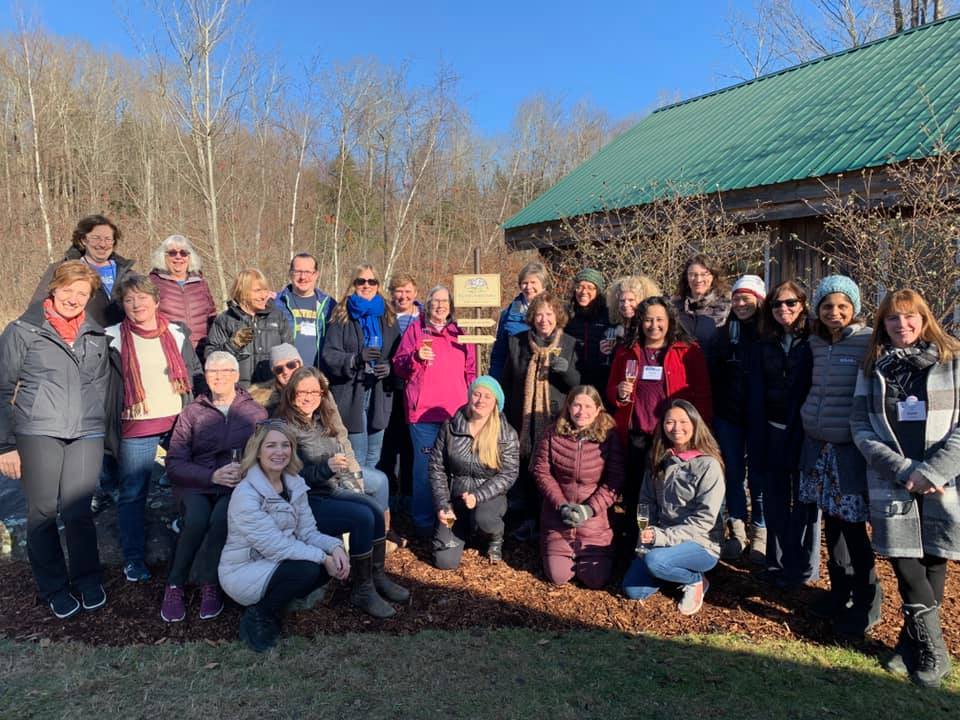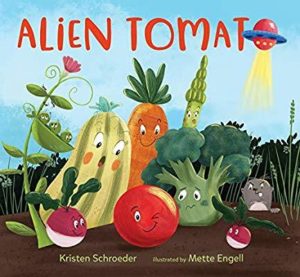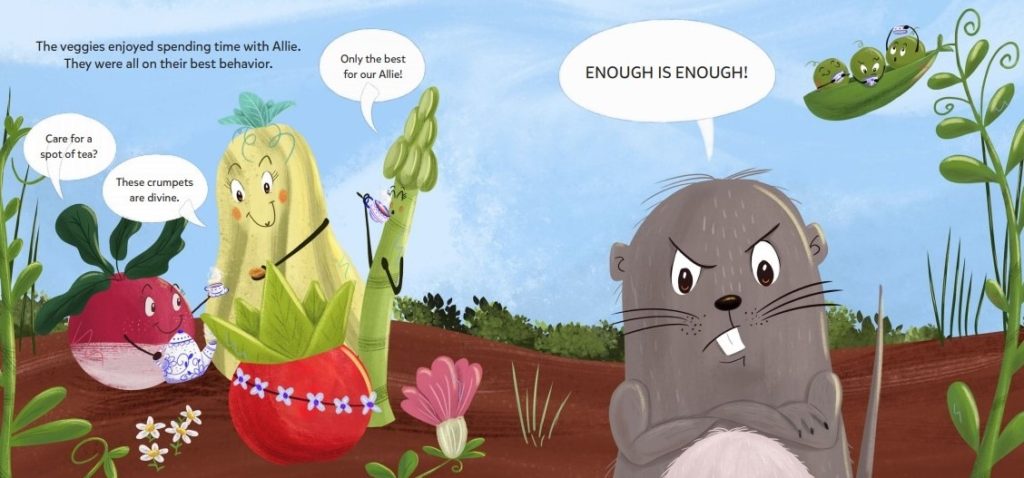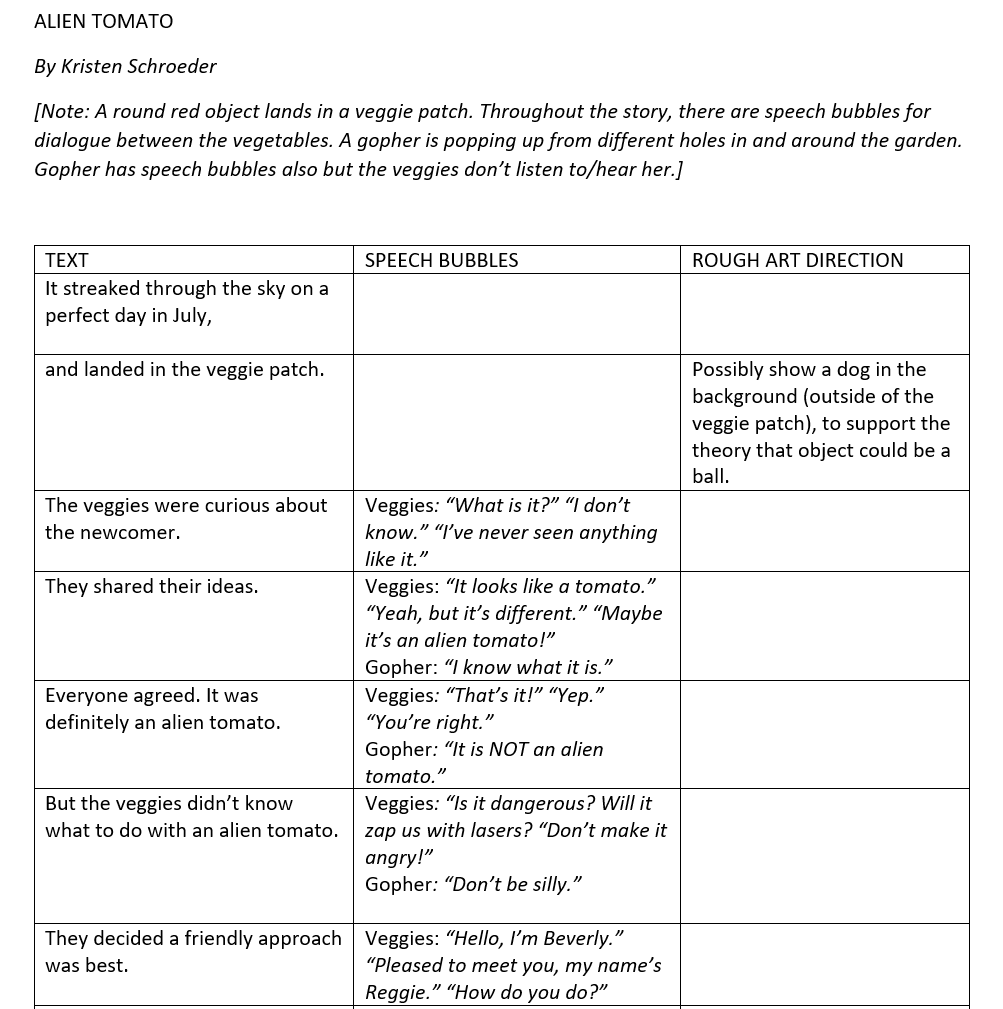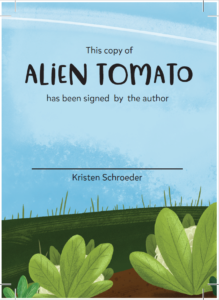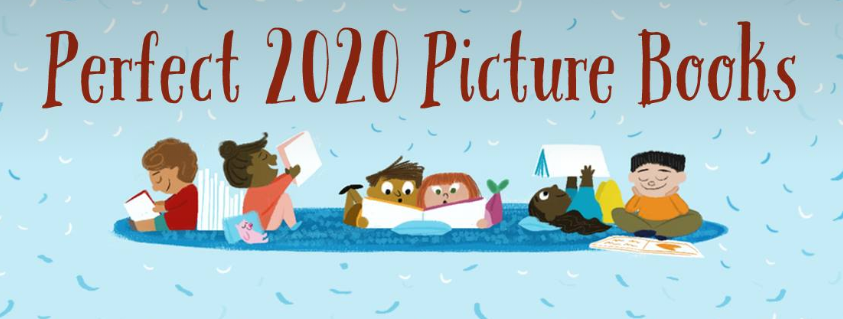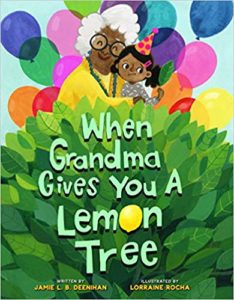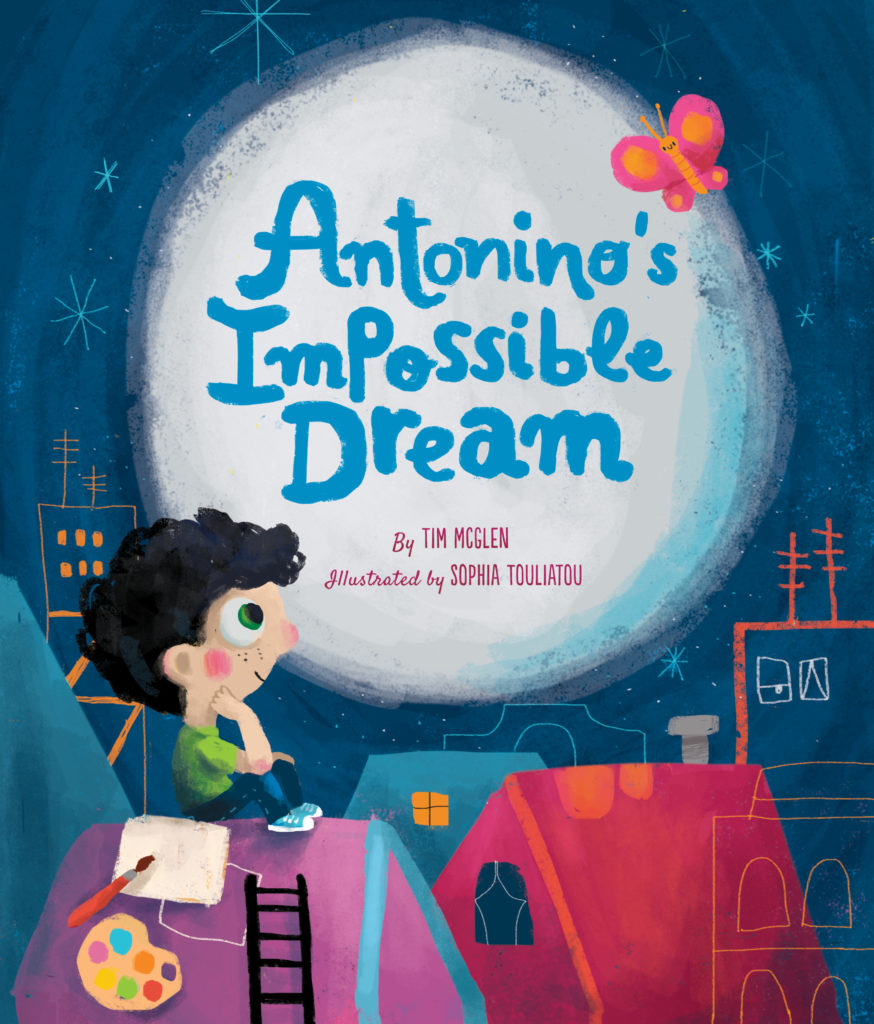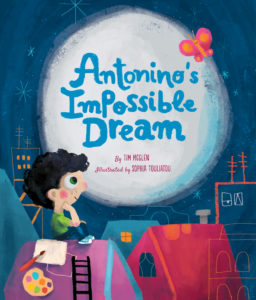 This month’s interview is with Todd Sturgell, an author/illustrator whose first book, Except Antarctica, hits bookshelves this month. While he’s originally from Ohio and then spent some time in Texas, Todd now lives in the North Carolina mountains with his “wife, kids, and an overactive rescue dog named Max.” Yes, the dog’s name comes straight out of Where the Wild Things Are.
This month’s interview is with Todd Sturgell, an author/illustrator whose first book, Except Antarctica, hits bookshelves this month. While he’s originally from Ohio and then spent some time in Texas, Todd now lives in the North Carolina mountains with his “wife, kids, and an overactive rescue dog named Max.” Yes, the dog’s name comes straight out of Where the Wild Things Are.
Let’s be honest–anytime you start naming your pets (or children!) after famous picture book characters, you’re committing to a certain path in life. And we’re glad Todd did because his debut book looks terrific. Let’s find out more about it right now!
- Todd’s Website
- Todd’s LinkedIn
- Todd’s Facebook
- Todd’s Instagram
- Todd’s agent (Molly O’Neill @ Root Literary)
RVC: When did you realize you were going to do art for a living?
TS: I was either going to be an artist or a paleontologist. Around 10 years old, I settled on art. Up until then, it could’ve gone either way.
RVC: Did you go to school for art or are you self-taught?
TS: I went to East Texas State (now Texas A&M University-Commerce) for art direction, specifically advertising and design. I’ve really enjoyed all the opportunities I’ve had to illustrate within the advertising and design world. Eventually, I admitted that I’ve got a calling to make picture books, and I needed to get after it.
RVC: How’d you end up in North Carolina?
TD: I worked at a very large advertising agency in Dallas and wanted a change. Since we always loved visiting the North Carolina coast, I started looking for smaller design firms there. I found one, so we moved out. And then the economy tanked, so it didn’t last.
I wasn’t going to go back to a big agency again. I’ve been freelancing since.
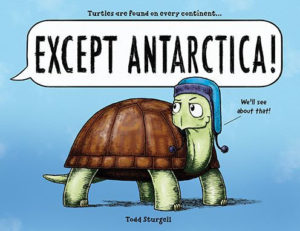 RVC: Let’s get to the book, which is called Except Antarctica (Sourcebooks eXplore). What’s it like being a debut author/illustrator whose book isn’t yet out?
RVC: Let’s get to the book, which is called Except Antarctica (Sourcebooks eXplore). What’s it like being a debut author/illustrator whose book isn’t yet out?
TS: I vary between panic and joy. I’m like, “Am I doing enough? Do I need to reach out to more people? Am I posting enough on social media?”
If I let myself sit back, take a deep breath, and hold my advance reader copy? Then I’m delighted. I’m so happy to be a part of the picture book world.
RVC: The “Am I doing enough?” question is one many writers face. What ARE you doing to help get the good word out about your book?
TS: I have a great marketing team with Sourcebooks–they’ve really reached out to a lot of people and made a lot of connections.
RVC: To people like me. That’s how I learned about you.
TS: That’s good to know! You can see why I’m kind of just following their lead. They find opportunities and ask if I’m interested. And I’m almost always interested.
I’m also part of STEAMTeam Books–it’s a group that supports each other with STEAM-related book launches. And they’ve been doing this for a couple of years now. We lift each other up and share each other’s social media posts, that kind of thing.
RVC: That’s a terrific idea. But let’s talk about the post-contract reality a debut author faces. What has surprised you the most about the whole process AFTER signing on the dotted line?
TS: How slow everything moves at the start. And then, when it all comes together, how fast it speeds up. You feel like you’re waiting and waiting and waiting, and then suddenly, okay, it’s almost here, and now you have a million things to do.
I would also say that debuting here on the back end of the pandemic has been something. I don’t know how typical my experience has been in 2021. Is it always this crazy?
I think my next book will feel as much like a debut as this one because the whole process could be so different.
RVC: That’s a good point. Plus, who doesn’t want to have two debuts, right? Back to your book. What’s the elevator pitch?
TS: What if you were watching a nature documentary, and the animals suddenly started doing the opposite of what the narrator says they’d do?
RVC: You’ve got a fun book trailer for Except Antarctica that explains a bit of this, but let me ask it outright–how did the idea for this book come about?
TS: I love nature documentaries, so I tried to expose my kids to as much of that as I could. And the phrase “except Antarctica” crops up over and over. There are so many species found all over the world, and you’ll hear the narrator say, “they’re found on every continent except Antarctica.”
One day, I was watching a show about owls. The narrator said that phrase, and I’m like, just yesterday, I heard that about turtles! Once I connected the concept of habitats to the idea of animals going off script, Except Antarctica was born.
RVC: What’s your favorite thing about the book?
TS: Even though the animals realize maybe they’ve made a mistake, I’m rooting for them the whole way. I especially love how they get to the ocean and the narrator’s like “Yeah, you’re done!” but on the very next page, they’re crossing the ocean! I loved putting that illustration together.
RVC: In terms of Except Antarctica, how will you measure success?
TS: Gosh, I already feel like a success just getting this far!
I hope that it’s successful enough to let me keep making more picture books. But I think the most important measure of success will be if kids–either having this book read to them or reading it themselves–laugh out loud. That’s the win right there. That’s the best type of success for me.
RVC: What was your pre-contract experience with this book? How did the drafting process go?
TS: I have three other authors in my critique group who really helped the manuscript along. When I first started out, I knew the animals were going to break the mold. Still, it took a couple of versions until I got to the point where they were defying the narrator directly. Once I came up with that, the manuscript in its current form almost wrote itself. I’ve actually been shocked at how few changes I’ve had to make in the text since that point. There was a lot more emphasis on helping me develop the illustrations for these characters.
RVC: So, having a critique group made a real difference.
TS: Absolutely. I had a real sense of the stumbling blocks within the book thanks to valuable input from a lot of helpful people. The interaction with the narrator solved almost all of them! Utilizing a “meta” concept isn’t new or unique, but it was absolutely the right decision for Except Antarctica.
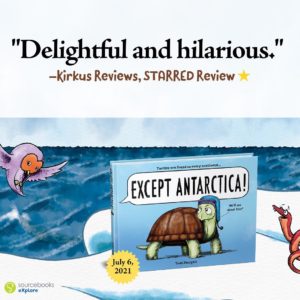 RVC: How many drafts did it take to get to the point where the book wrote itself?
RVC: How many drafts did it take to get to the point where the book wrote itself?
TS: A lot. You’ve got to try different things. There was a point where I had a character who could be found on any continent except Antarctica AND Australia, but he wanted to come along. The others said, “Hey, maybe you should go to Australia first!” because they were afraid of him. That was an interesting little thing, but it really bogged down the book. I had to work that out and get through it before finally dropping it. I go through a lot of these moments where I try different things, and I pull back to see if it works or not. It’s a process.
RVC: Speaking of a process, care to reveal a bit about the actual process you use to produce a picture-book manuscript?
TS: I’m drawing and writing at the same time. I don’t do one and then the other. It’s not like I develop characters and write or develop the manuscript, and then draw the characters. It all comes together in a storyboard format, rather than a Word document. For me, the art and the writing move forward together.
RVC: Any advice for young writers or illustrators?
TS: When they get started, a lot of people feel very competitive, very protective of their own ideas. The quicker you figure out that most of the people in the kidlit world want to lift each other up and make everybody better, the sooner you start to feel comfortable here. This is a great community. I love almost everyone I’ve met since starting this journey.
RVC: What’s something you know now that you wish you knew back when you first started out?
TS: Worry a lot less about agents and the business, and spend more time focused on craft. Thinking about submissions and gatekeepers felt overwhelming–it probably slowed me down quite a bit in trying to figure it all out. If I had just let some of that fall off, I think I would have enjoyed the process more.
RVC: Last question for this part of the interview. What are you working on now?
TS: My contract with Sourcebooks is for two books. They’d really like to see some of the elements from this book in the next one, so that’s what we’re looking at right now.
RVC: Alrighty. It’s time for the Speed Round. Are you ready, Todd? We’re looking for the opposite of turtle-slow Q&A here!
TS: Ready!
RVC: Favorite place to go hiking in North Carolina?
TS: Graveyard Fields.
RVC: Best place to get North Carolina BBQ?
TS: North Carolina BBQ has too much vinegar in it for me. There’s a place around here called Haywood Smokehouse that has good Texas BBQ. I love that.
RVC: What secret talent do you have?
TS: I play a pretty mean pirate. I was a pirate guide for a ghost tour one summer!
RVC: Five things we’d see if we sneaked a peek at your writing and drawing studio?
TS:
- A mess (incredibly annoying!).
- Koh-I-Noor drawing pens that I have to clean incessantly, but they’re so great I can’t let them go.
- Lots and lots of books.
- Club soda. All the time.
- My dog, waiting impatiently for me to take him out on a trail.
RVC: What’s a recent picture book that really got your attention?
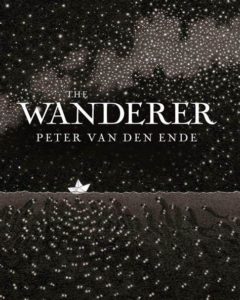 TS: The Wanderer by Peter Van den Ende is stunningly beautiful.
TS: The Wanderer by Peter Van den Ende is stunningly beautiful.
RVC: Your mission as a picture book creator?
TS: I want to connect with readers the same way that my favorite picture books connected with me when I was a kid.
RVC: This was terrific, Todd. Thanks for stopping by and sharing your story with OPB. Best of luck with Except Antarctica!


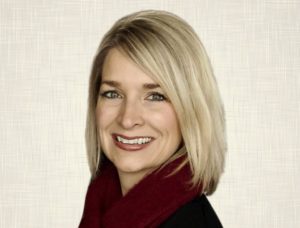 It’s always a treat to be able to showcase the work of a debut picture book author, and with this month’s Author Interview, that’s what we’re doing. Minnesota author Kristen Schroeder’s first book,
It’s always a treat to be able to showcase the work of a debut picture book author, and with this month’s Author Interview, that’s what we’re doing. Minnesota author Kristen Schroeder’s first book, 